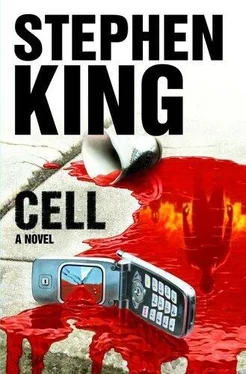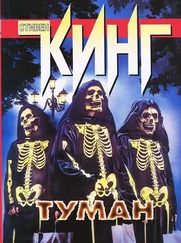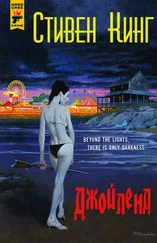"My wife and boy are either all right or they're not. I've made my peace with that."
This was a lie, and perhaps Ardai saw it in Clay's face, because he smiled his unsettling smile. "And do you believe your son has made peace with not knowing if his father is alive, dead, or insane? After only a week?"
"That's a low blow," Clay said. His voice was not quite steady.
"Really? I didn't know we were fighting. In any case, there's no referee. No one here but us chickens, as they say." The Head glanced at the closed door, then looked back at Clay again. "The equation is very simple. You can't stay and I can't go. It's best that Jordan go with you."
"But to put you down like a horse with a broken leg—"
"No such thing," the Head interrupted. "Horses do not practice euthanasia, but people do." The door opened, Tom stepped in, and with hardly a pause for breath the Head went on, "And have you ever considered commercial illustration, Clay? For books, I mean?"
"My style is too flamboyant for most of the commercial houses," Clay said. "I have done jackets for some of the small fantasy presses like Grant and Eulalia. Some of the Edgar Rice Burroughs Mars books."
"Barsoom!" the Head cried, and waved his cane vigorously in the air. Then he rubbed his solar plexus and grimaced. "Damned heartburn! Excuse me, Tom—just came up to have a natter before lying down a bit myself."
"Not at all," Tom said, and watched him go out. When the sound of the Head's cane had gotten a good distance down the hall, he turned to Clay and said, "Is he okay? He's very pale."
"I think he's fine." He pointed at Tom's face. "I thought you were going to shave off the other half."
"I decided against it with Alice hanging around," Tom said. "I like her, but about certain things she can be evil."
"That's just paranoia."
"Thanks, Clay, I needed that. It's only been a week and I'm already missing my analyst."
"Combined with a persecution complex and delusions of grandeur."
Clay swung his feet up onto one of the room's two narrow beds, put his hands behind his head, and looked at the ceiling.
"You wish we were out of here, don't you?" Tom asked.
"You bet I do." He spoke in a flat and uninflected monotone.
"It'll be all right, Clay. Really."
"So you say, but you have a persecution complex and delusions of grandeur."
"That's true," Tom said, "but they're balanced out by poor self-image and ego menstruation at roughly six-week intervals. And in any case—"
"—too late now, at least for today," Clay finished.
"That's right."
There was actually a kind of peace in that. Tom said something else, but Clay only caught "Jordan thinks . . ." and then he was asleep.
27
He woke screaming, or so he thought at first; only a wild look at the other bed, where Tom was still sleeping peacefully with something—a washcloth, maybe—folded over his eyes convinced Clay that the scream had been inside his head. A cry of some sort might have escaped him, but if so it hadn't been enough to wake his roommate.
The room was nowhere near dark—it was midafternoon—but Tom had pulled the shade before corking off himself, and it was at least dim. Clay stayed where he was for a moment, lying on his back, his mouth as dry as wood-shavings, his heartbeat rapid in his chest and in his ears, where it sounded like running footsteps muffled in velvet. Otherwise the house was dead still. They might not have made the switchover from days to nights completely yet, but last night had been extraordinarily exhausting, and at this moment he heard no one stirring in the Lodge. Outside a bird called and somewhere quite distant—not in Gaiten, he thought—a stubborn alarm kept on braying.
Had he ever had a worse dream? Maybe one. A month or so after Johnny was born, Clay had dreamed he'd picked the baby up from the crib to change him, and Johnny's chubby little body had simply fallen apart in his hands like a badly put-together dummy. That one he could understand—fear of fatherhood, fear of fucking up. A fear he still lived with, as Headmaster Ardai had seen. What was he to make of this one?
Whatever it meant, he didn't want to lose it, and he knew from experience that you had to act quickly to keep that from happening.
There was a desk in the room, and a ballpoint pen tucked into one pocket of the jeans Clay had left crumpled at the foot of the bed. He took the pen, crossed to the desk in his bare feet, sat down, and opened the drawer above the kneehole. He found what he was hoping for, a little pile of blank stationery with the heading GAITEN ACADEMYand “ A Young Mind Is A Lamp In The Darkness. " on each sheet. He took one of them and placed it on the desk. The light was dim, but would serve. He clicked out the tip of the ballpoint and paused for just a moment, recalling the dream as clearly as he could.
He, Tom, Alice, and Jordan had been lined up in the center of a playing field. Not a soccer field like Tonney—a football field, maybe? There had been some sort of skeletal construction in the background with a blinking red light on it. He had no idea what it was, but he knew the field had been full of people looking at them, people with ruined faces and ripped clothes that he recognized all too well. He and his friends had been . . . had they been in cages? No, on platforms. And they were cages, all the same, although there were no bars. Clay didn't know how that could be, but it was. He was losing the details of the dream already.
Tom was on one end of the line. A man had walked to him, a special man, and put a hand over his head. Clay didn't remember how the man could do that since Tom—like Alice, Jordan, and Clay himself—had been on a platform, but he had. And he'd said, "Ecce homo — insanus." And the crowd—thousands of them—had roared back, "DON'T TOUCH!" in a single voice. The man had gone to Clay and repeated this. With his hand above Alice's head the man had said, "Ecce femina — insana." Above Jordan, "Ecce puer — insanus." Each time the response had been the same: "DON'T TOUCH!"
Neither the man—the host? the ringmaster?—nor the people in the crowd had opened their mouths during this ritual. The call-and-response had been purely telepathic.
Then, letting his right hand do all the thinking (his hand and the special corner of his brain that ran it), Clay began to stroke an image onto the paper. The entire dream had been terrible—the false accusation of it, the caughtness of it—but nothing in it had been so awful as the man who had gone to each of them, placing his open palm-down hand over their heads like an auctioneer preparing to sell livestock at a county fair. Clay felt that if he could catch that man's image on paper, he could catch the terror.
He had been a black man with a noble head and an ascetic's face above a lanky, almost scrawny body. The hair was a tight cap of dark ringlets cut open on one side by an ugly triangular gouge. The shoulders were slight, the hips nearly nonexistent. Below the cap of curls Clay quick-sketched the broad and handsome forehead—a scholar's forehead. Then he marred it with another slash and shaded in the hanging flap of skin that obscured one eyebrow. The man's left cheek had been torn open, possibly by a bite, and the lower lip was also torn on that side, making it droop in a tired sneer. The eyes were a problem. Clay couldn't get them right. In the dream they had been both full of awareness yet somehow dead. After two tries he left them and dropped to the pullover before he lost that: the kind the kids called a hoodie (red, he printed, with an arrow), with white block letters across the front. It had been too big for the skinny body and a flap of material lay over the top half of the letters, but Clay was pretty sure it said harvard. He was starting to print that when the weeping started, soft and muffled, from somewhere below him.
Читать дальше








